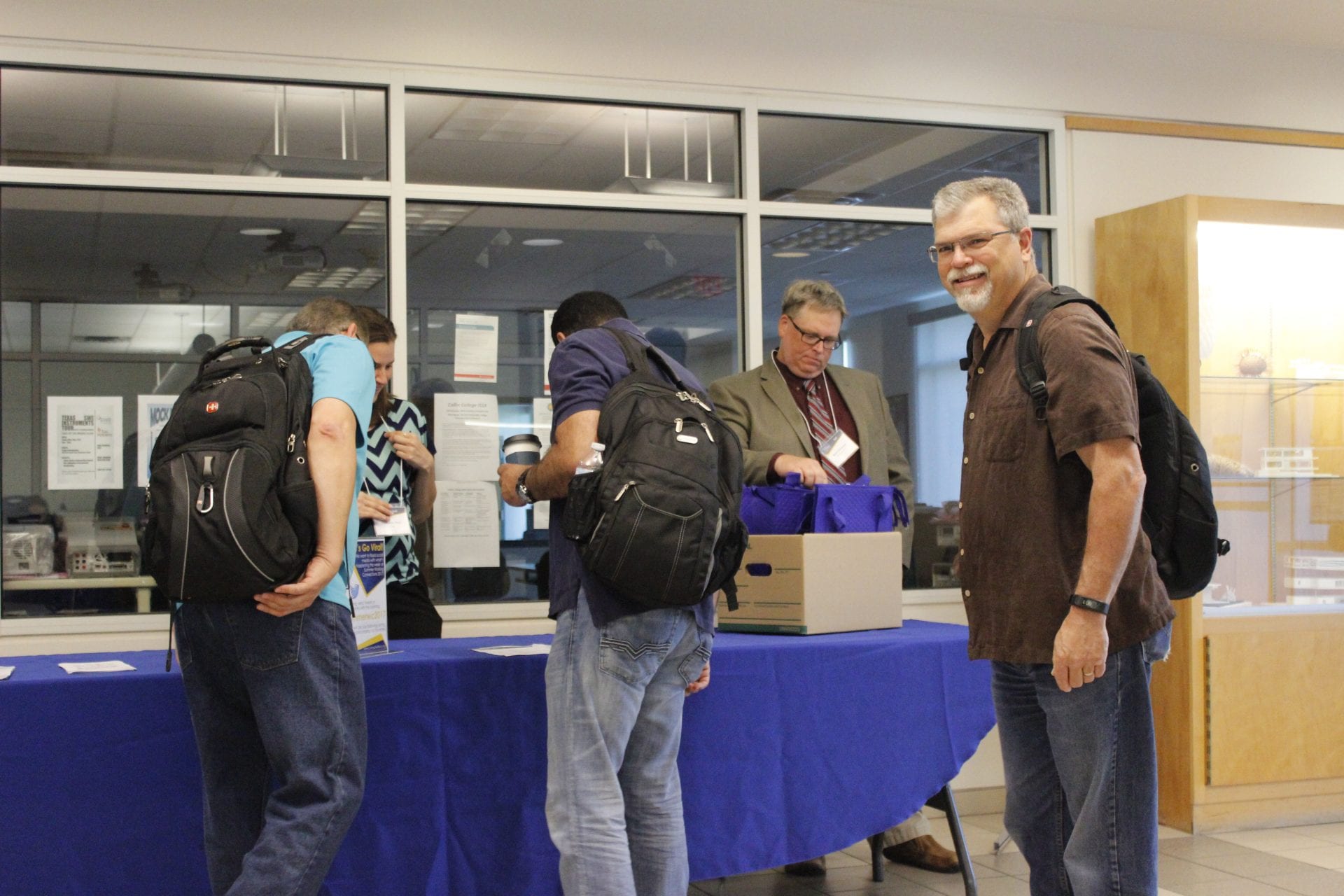Counting Down to Summer Working Connections

The biggest event of the year for the National Convergence Technology Center (CTC) starts in just 28 days. The Summer Working Connections training event – which runs July 16-20 – hosts IT educators from all over the country for an in-depth, five-day workshop on a specific topic. The conference also features lunch presentations that share unique perspectives and insights from both educator and industry experts. In addition, the CTC reserves space on the first evening of Working Connections at a Tex-Mex restaurant to provide a venue for networking among attendees and spicy, local cuisine for those who don’t have spend much time down south.
As always, it’s been a long journey to get here. Discussions begin in late January when the National CTC and its grant partners first discuss possible track topics. Those talks are followed by negotiations with local hotels for limited discounted room blocks, booking instructors, launching online registration, assigning classrooms based on unique track needs and creating registration materials. As one might imagine, it’s a lengthy, detailed process.
As of today, 96 attendees have registered from 58 schools in 23 states. Those 96 registrations will push the overall total of Working Connections duplicated enrollments (which started in 2002) to over 1900. To date, Working Connections events have covered over 90 IT and pedagogy topics.
Next month, Summer Working Connections features instruction in these six topics:
- “Big Data Analytics and Data Visualization” is an introductory session to the world of data visualization dashboards and big data analytics. Microsoft PowerBI and Tableau are two leading data visualization and analytics tools in the market today. In this workshop, participants will understand the basics of big data and how businesses are creating a culture of data-driven decision-making.
- “CySA+,”an intermediate-level Cyber Security course, will provide attendees the opportunity to gain immeasurable hands-on experience with current and emerging security tools. Students will learn about the latest threats, vulnerabilities, analysis, and counter-measures in a controlled classroom environment.
- “Firewall Essentials” will cover all aspects of configuring and managing Palo Alto firewall appliance as well as how it integrates into Palo Alto technology platform. It is Palo Alto’s full EDU 210 commercial training course and will include the newest 8.1 labs.
- “Integrating Hybrid Cloud” will focus on enabling participants to add data management and cloud fundamentals to their IT programs and courses. The content familiarizes participants with NetApp hybrid cloud, Microsoft Azure, and Amazon Web Services (AWS) solutions and demonstrates how these solutions work.
- “Preparing to Teach the Internet of Things” will have participants “get their hands dirty” by walking through various lab assignments in support of IoT/IoE technologies. Labs will consist of both “high-touch” and virtual. All of the exercises demonstrated and performed during this course can be done in a typical networking classroom/lab (such as A+, Network+ or Cisco).
- “vSphere 6.5 Install, Configure, Manage” is VMware’s most popular course. It features intensive hands-on training that focuses on installing, configuring, and managing VMware vSphere® 6, which includes VMware ESXi™ 6.5 and VMware vCenter Server™ 6.5. This course prepares attendees to administer a vSphere infrastructure for an organization of any size and forms the foundation for most other VMware technologies in the software-defined data center.
For tracks that are currently closed, please remember that you can register on the WAIT LIST and be added to the closed track if room opens up before Friday. We expect some attendees to cancel this week, which means space will probably open in closed tracks.
The goal is for Working Connections attendees to take what they learn back to their home schools for immediate implementation, either by creating a new class or by updating an existing class. Each January, longitudinal surveys go out to every Working Connection attendee from the previous five years to measure actual classroom impact. For the National Science Foundation (the CTC’s funding agency), it’s not enough to simply hold a training event. Work must be done to try and explore the impact of that event and the difference it made.
Here’s a quick summary of the January 2018 Working Connections longitudinal surveys, which asked questions to attendees from 2013-2017 Working Connections events.
- 75% of attendees selected a track that they were not already teaching, which means they are introducing new topics and skills their students might not otherwise receive.
- 49% of attendees were still teaching their track topic through the 2017-18 school year – including 53% of attendees from the 2013 Working Connections event – illustrating the lasting value of this training.
- 57% of attendees reported using the Working Connections training to update course materials, while 50% (attendees could answer more than once) used the training to change or update classroom exercises.
- 18% used their Working Connections training to create a new program, certificate, or course.
If one steps back and looks at the cumulative history of these January longitudinal surveys (which started in 2008), the larger picture of the ongoing impact becomes clear. Working Connections attendees report that they have taught over 108,200 students in 3600 classes in their track topic areas.
